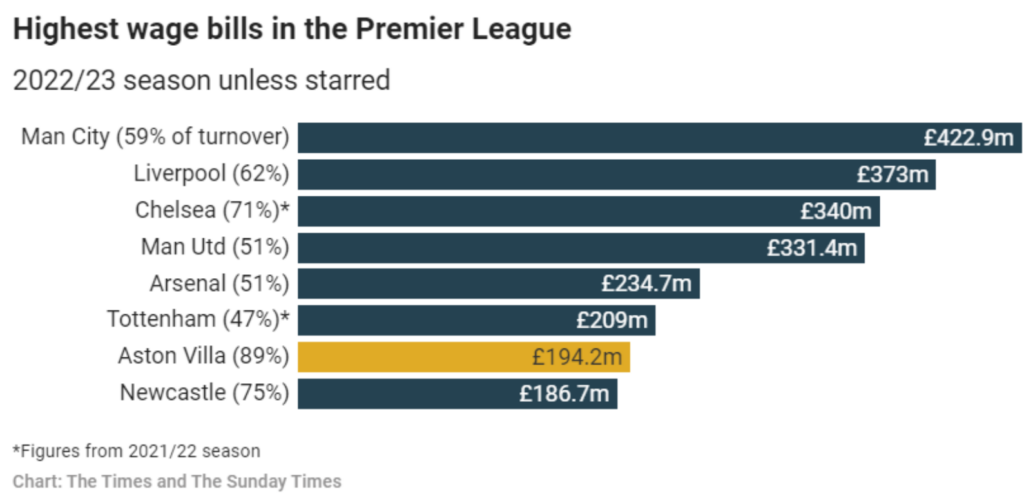ARTICLE AD
An interesting new piece of analysis looking at Premier League clubs wage bills.
The analysis comes from Martyn Ziegler of The Times.
His analysis comes after the release of the latest Aston Villa accounts, for the 2022/23 season.
This table from The Times shows the various Premier League club wage bills, using the most recent available figures:

As you can see, of the eight clubs, only Spurs haven’t published their 2022/23 accounts, so their wages figure is for the 2021/22 season.
Recent previous media analysis of Premier League clubs wage bills had needed to use the Aston Villa 2021/22 accounts and their wage bill then was £137m.
However, as you can see above, that Villa wage bill increased by £57m and sends them above Newcastle United, who drop to eighth highest.
No surprise to see which six clubs are at the top.
The Newcastle United £187m wage bill for 2022/23 is absolutely dwarfed by Manchester City and their £423m, way over twice as much as NUFC ‘s, £236m higher.
Liverpool’s (£374m) is exactly double Newcastle’s, £187m higher.
Whilst Chelsea (£360m) and Man U (£331) are also pretty much double that of NUFC, £173m and £144m higher respectively.
What had taken most headlines with their 2022/23 accounts release, was Aston Villa revealing that they had made a loss of £119.6m last season.
Villa though claiming this is “in line with the strategic business plan” and within Premier League PSR (Profit and Sustainability rules) restrictions, which allow losses of up to £105m over three seasons.
Even before the publication of these accounts, there had been a lot of speculation that in order to stay on the right side of Premier League PSR restrictions, Aston Villa would likely need to sell a first team player for significant cash to satisfy PSR.
As with Newcastle United, Aston Villa finding it is a very difficult process trying to close the gap on those Premier League clubs with far higher turnovers, who thus have far more freedom to speculate on transfer fees and wages.
It is almost as though the Premier League PSR restrictions were put in place to ensure the most powerful clubs with the highest existing turnovers stay that way…

 

.png) 8 months ago
48
8 months ago
48 

